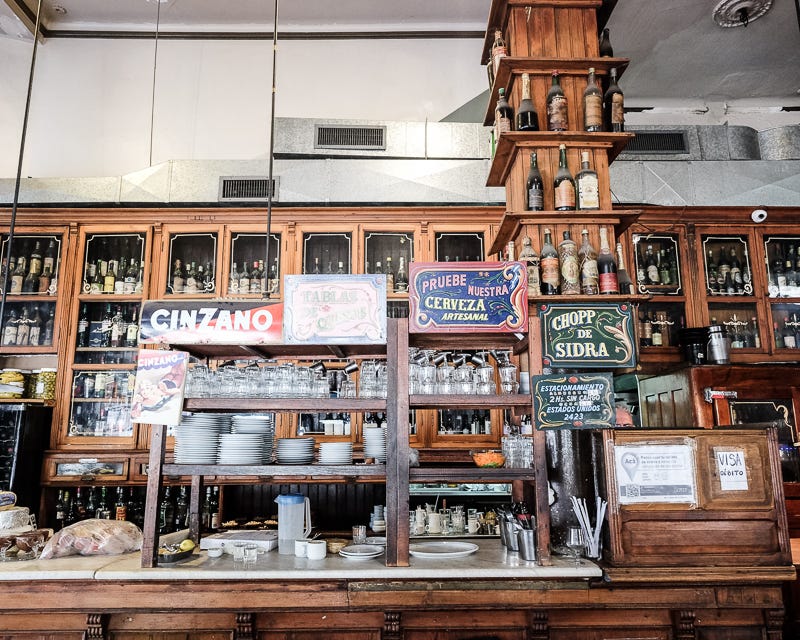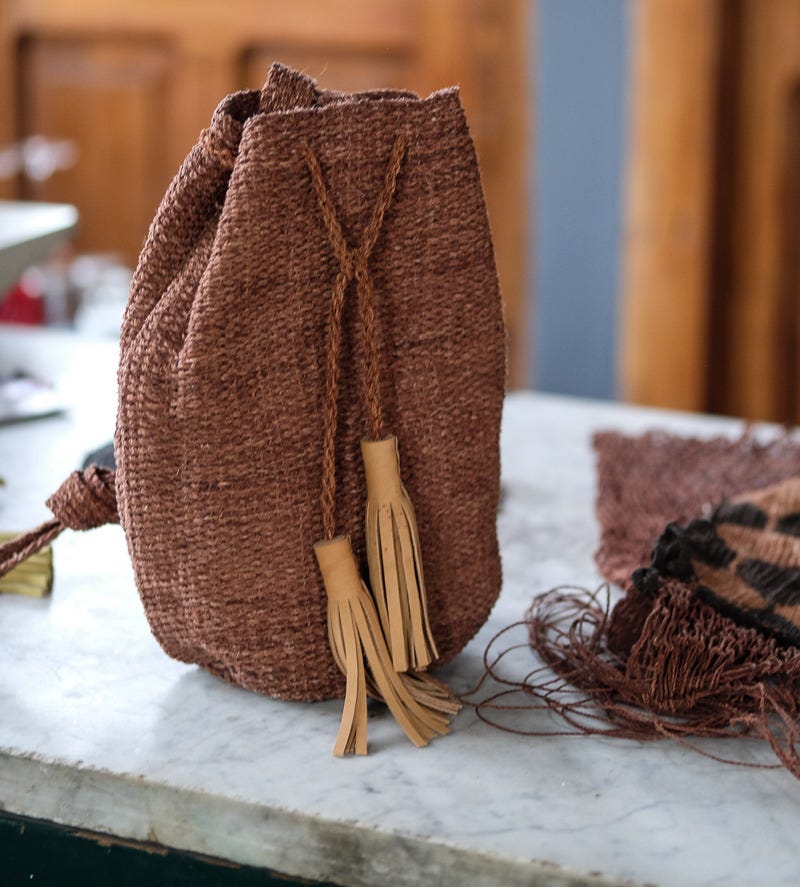Why Can't We Have Tariffs on Just the Stupid Stuff?
My roundup of crucial reading related to sustainability and consumer product toxicity.
When I visited Buenos Aires in Argentina in 2018, I was utterly charmed… at first. Everything was vintage and handmade. There were hand-painted signs over every business’s door, and reusable seltzer bottles at the restaurants delivering bubbly water. The whole city had an antique feel. I mean, come on. We love a good crumbling wall.
But then, I learned that this was the result of poorly managed economic policy over a century. Of hyper inflation, chaotic tariffs, and economic ruin.
That’s when I noticed that the old painted municipal buses that provide public transportation would belch black smoke. No electric or even efficient buses here. I noticed how almost all the buildings were in disrepair, crumbling and moldering in the humidity, because construction supplies are so expensive. I went into a vintage store and the prices on H&M tops were twice what they were for new tops in the U.S.
It wasn’t just difficult to get things from abroad. It was also difficult to make things at home, and export products.
I interviewed an American living in Buenos Aires struggling to make her small artisan business work. I learned that it’s impossible to get the most beautiful, luxury, Patagonian fiber, guanaco (similar to alpaca or vicuña) outside of the country because of what a hash the government has made of import/export rules.
I was fascinated by how Argentina had gone from one of the wealthiest countries in the world to a poor, basket-case economy, swinging from socialist to fascist governments, always yearning for the glory days.
At the time, I felt something like pity. It seemed a lovely place to visit, but not to live. Well, now, I feel a sort of kinship. Because it feels like that is where we are headed.
I Just Want to Make Good Things That People Enjoy
There are many good reasons to like tariffs.
There’s the fact that up until last week, it was cheaper to buy a brand new, toxic, polyester dress from Shein (which didn’t pay its fair share of import tariffs) than to bring a vintage dress to the tailor and get it hemmed and fitted to your body.
There’s the vision of thousands of container ships burning heavy oil as they chug around the world, delivering the dumbest stuff to every port. Really, the absolutely stupidest garbage: plastic, penis-shaped magnets, PVC children’s backpacks, and other tchotchkes you see filling tourist shops in every city in the world.
There’s the fact that it’s almost impossible to start a fashion company that makes things here, because if it’s a beautiful, unique, wanted, high-quality thing, a Chinese factory will copy it and customers will gladly buy the cheap dupe and tell you it’s your fault for charging what it costs to make a thing in the U.S. As if you are the bad person, an elitist, for “gate-keeping” ethical fashion.
There’s the pervasive feeling that you’re a sucker for wanting to do things right, or for wanting to buy ethically-made things, because if you can find it cheaper on Wayfair, why would you pay more? What are you, rich?
There’s the fact that even if you did want to buy fewer but better things all made in America, you can’t, because we literally do not have the skill set or factories to do so.
Yes, I’m perfectly happy if Quince doesn’t survive the tariffs. If this means millions of Americans start shopping secondhand on eBay instead of going straight to Amazon, that will be a welcome cultural shift in my book. If this means the dumbest, trashiest crap becomes twice as expensive, amazing.
But this! This is chaotic. With all the secrecy around what industries get exemptions from the tariffs, there’s a worry that it’s an avenue for corruption and bribery. It’s not done in a thoughtful way that can bring manufacturing back to the U.S. It’s not a tariff just on the stupid stuff that we don’t need. It’s a tariff on the stuff we do really need to live our lives, such common and vital things as running sneakers, baby strollers, insulated mugs, umbrellas, clothing irons, children’s books, and hangers. And it’s so sloppy and unpredictable, that nobody is going to build a baby stroller factory based on this policy.
In fact, does any American even want to work in a factory that makes some of this crap? (If you want a nuanced look at the issue of Chinese versus American factory workers, I highly recommend the documentary American Factory.)
Just read about some of the policies that set Argentina on its economic decline:
As part of an "Argentina first" policy, tariff barriers were put in place to protect the country's weak industrial base. The aim was for Argentina to be as self-sufficient as possible and workers received high wages and social benefits. Gas plants were purchased, as well as electric companies and the telephone network, and a staggering number of inefficient state companies were founded. (Read the rest at DW)
Sound familiar?
What Do We Really Want?
We want good, meaningful jobs, that’s all.
I don’t want the opportunity to work on an assembly line for umbrellas. I want to be able to earn a living writing informative articles that help people. I want small designers to make a living crafting beautiful things that last a long time. I want teachers to be able to save for retirement. I want the organic farmer down the road to be able to repair his tractor, grow apples organically, and pass on his farm to the next generation as a genuinely good legacy. I want to have more options than buying from this terrible corporation or that maybe less terrible (but who really knows!?) corporation.
I’m not sure if crafting our economy to look like that is possible. But I do know that it would take an incredibly thoughtful, nuanced, detailed, slow policy shift. Sadly, it seems that thoughtfulness is not the American way. Not any longer, that is.
More Good Reads
I hope you enjoyed my link-filled little essay today! I have more reads on health, sustainability, and consumer product safety for my paid subscribers, below.







